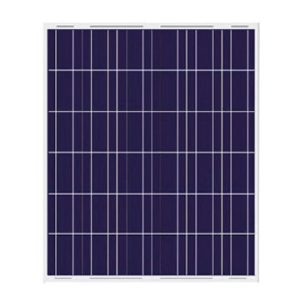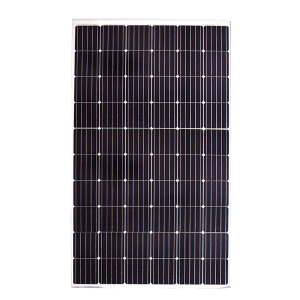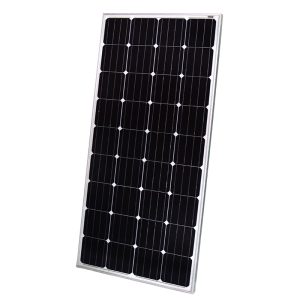Businesses today are increasingly recognizing the immense potential of solar energy to reduce operational costs, enhance sustainability, and future-proof their operations. Installing a 500kW solar system can be a game-changer, offering substantial financial savings while contributing to a greener future. In this comprehensive guide, we’ll explore the benefits, costs, financing options, and key considerations for businesses looking to harness the power of the sun.
The Compelling Case for Commercial Solar
Investing in a 500kW solar system can yield significant advantages for businesses of all sizes and across various industries. Here are some of the key benefits:
Substantial Cost Savings: By generating a substantial portion of your energy needs on-site, you can significantly reduce your reliance on utility companies and protect yourself against rising electricity rates. Many businesses that have installed 500kW solar systems have reported savings ranging from $90,000 to $180,000 annually on their energy bills.
Improved Sustainability and Brand Image: Transitioning to solar power can significantly lower your company’s carbon footprint, aligning with corporate social responsibility goals and appealing to environmentally conscious customers and employees. This commitment to sustainability can enhance your brand image and competitive advantage in the market.
Energy Independence and Reliability: Solar energy provides businesses with greater energy independence and resilience. By generating your own electricity and integrating with battery storage solutions, you can reduce vulnerability to power outages or disruptions in the grid, ensuring uninterrupted operations.
Financial Incentives and Tax Credits: Businesses investing in solar energy can take advantage of various incentives, rebates, and tax credits that can significantly reduce the overall cost of the system. The federal Investment Tax Credit (ITC) alone allows businesses to deduct 30% of the total cost of their solar system installation from their federal taxes.
Long-Term Financial Returns: While the upfront cost of a 500kW solar system may seem substantial, the long-term financial returns can be significant. Most systems have a payback period of 4 to 6 years, after which the savings generated by your solar system are pure profit for your business.
With these compelling benefits, it’s no wonder that an increasing number of businesses are embracing solar energy as a strategic investment for their future.
Cost Breakdown: What to Expect
Installing a 500kW solar system is a significant investment, but understanding the cost breakdown can help businesses plan and budget accordingly. Here’s a breakdown of the typical costs involved:
Equipment Costs: The solar panels, inverters, racking systems, and associated equipment make up a significant portion of the overall cost. For a 500kW system, businesses can expect to pay between $500,000 and $800,000 for the necessary equipment, depending on the quality and brand of components chosen.
Labor and Installation Costs: In addition to the equipment, businesses must factor in the costs of labor and installation. This includes the services of licensed solar contractors, electricians, and other professionals required for the proper installation and integration of the system. Labor and installation costs can range from $100,000 to $200,000 for a 500kW system, depending on the complexity of the project and the location.
Permitting and Interconnection Fees: Before installation can begin, businesses must obtain the necessary permits and approvals from local authorities. This may include building permits, electrical permits, and interconnection agreements with the utility company. These fees can vary depending on the location but typically range from $5,000 to $20,000 for a 500kW system.
Maintenance and Monitoring Costs: To ensure optimal performance and longevity, solar systems require regular maintenance and monitoring. This may include cleaning the panels, inspecting the equipment, and monitoring system performance through specialized software or services. Annual maintenance and monitoring costs can range from $5,000 to $10,000 for a 500kW system.
Based on these factors, businesses can expect to invest between $610,000 and $1,030,000 for a 500kW solar system installation. However, it’s important to note that these costs can vary depending on the specific project requirements, location, and any incentives or tax credits available.
Financing Options for Your Solar Investment
While the upfront costs of installing a 500kW solar system can be substantial, there are various financing options available to help businesses make this investment more manageable:
Cash Purchase: For businesses with the necessary capital, a cash purchase may be the most straightforward option. By paying for the system outright, businesses can avoid interest charges and potentially benefit from tax incentives and rebates more directly.
Leasing: Leasing a solar system allows businesses to avoid the high upfront costs associated with a cash purchase. Instead, they pay a fixed monthly fee to a third-party owner who installs and maintains the system. This option can be attractive for businesses with limited capital or those who prefer to preserve their cash flow.
Power Purchase Agreements (PPAs): Under a PPA, a third-party developer installs and owns the solar system on the business’s property. The business then agrees to purchase the electricity generated by the system at a predetermined rate, typically lower than utility rates. PPAs can be an attractive option for businesses with limited capital, as they require little to no upfront investment.
Loans and Financing: Businesses can also explore various loan and financing options to fund their 500kW solar system installation. This may include traditional bank loans, energy-specific loans from government or utility programs, or specialized solar financing from third-party providers. While loans require interest payments, they can provide businesses with the necessary capital to own the system outright and benefit from long-term cost savings and incentives.
When evaluating financing options, businesses should consider factors such as upfront costs, long-term costs, tax implications, and ownership structure. It’s also advisable to consult with financial advisors and solar experts to determine the best solution based on the business’s specific needs and goals.
Incentives and Tax Credits: Maximizing Your Savings
In addition to the long-term cost savings and environmental benefits, businesses investing in a 500kW solar system may be eligible for various incentives and tax credits that can further enhance the financial viability of the project:
Federal Investment Tax Credit (ITC): The federal Investment Tax Credit (ITC) is a significant incentive for businesses investing in solar energy. Currently, the ITC allows businesses to deduct 30% of the total cost of their solar system installation from their federal taxes. This credit applies to both residential and commercial solar projects and can significantly reduce the overall cost of the system.
State and Local Incentives: In addition to the federal ITC, many states and local governments offer their own incentives to encourage the adoption of solar energy. These may include rebates, performance-based incentives (PBIs), property tax exemptions, or sales tax exemptions. The specific incentives available vary by location, so it’s essential for businesses to research the programs offered in their area.
Net Metering and Feed-in Tariffs: Net metering and feed-in tariff programs can further enhance the financial benefits of a 500kW solar system. Net metering allows businesses to receive credits from their utility company for any excess electricity their solar system generates and feeds back into the grid. Feed-in tariffs, on the other hand, enable businesses to sell the electricity generated by their solar system to the utility at a predetermined rate, often higher than the retail rate.
Renewable Energy Certificates (RECs): Businesses that install a 500kW solar system may also be eligible to earn Renewable Energy Certificates (RECs) for the clean energy they generate. RECs can be sold on the open market, providing an additional revenue stream and further offsetting the cost of the solar system.
To maximize the financial benefits of their 500kW solar system investment, businesses should thoroughly research and take advantage of all available incentives, tax credits, and programs in their area. Working with experienced solar professionals and consulting with tax advisors can help ensure that businesses are taking full advantage of these opportunities and maximizing their savings.
Integrating a 500kW Solar System with Existing Infrastructure
When installing a 500kW solar system, businesses must consider how to effectively integrate the new system with their existing energy infrastructure. Proper integration is crucial for ensuring seamless operations, maximizing energy efficiency, and avoiding potential conflicts or compatibility issues:
Grid Interconnection: One of the primary integration considerations is the interconnection between the solar system and the local utility grid. Businesses must work closely with their utility provider to ensure that the solar system meets all interconnection requirements and safety standards. This may involve obtaining necessary approvals, installing specialized equipment (such as net meters or disconnect switches), and adhering to specific interconnection protocols.
Energy Storage Solutions: Integrating a 500kW solar system with energy storage solutions, such as battery banks, can provide businesses with greater energy resilience and flexibility. Energy storage systems can store excess solar energy generated during peak production hours for use during periods of high demand or when solar production is low. This can help businesses maximize their solar energy utilization, reduce reliance on the grid, and ensure uninterrupted operations.
Backup Power Systems: For businesses that require uninterrupted power supply, integrating the 500kW solar system with existing backup power systems, such as generators or uninterruptible power supplies (UPS), is essential. Proper integration can ensure a seamless transition between power sources during outages or maintenance periods, minimizing downtime and ensuring business continuity.
Building Management Systems (BMS): Many commercial buildings have Building Management Systems (BMS) that control and monitor various aspects of the building’s operations, including energy management. Integrating the 500kW solar system with the existing BMS can provide businesses with real-time monitoring and control capabilities, enabling them to optimize energy usage, identify potential issues, and make data-driven decisions about their energy consumption.
Professional Consultation and Planning: Given the complexity of integrating a 500kW solar system with existing infrastructure, it’s crucial for businesses to work with experienced solar professionals and energy consultants. These experts can conduct thorough site assessments, analyze existing systems, and develop comprehensive integration plans tailored to the business’s specific needs and requirements. Proper planning and consultation can help ensure a smooth integration process, minimize potential conflicts, and maximize the overall efficiency and performance of the solar system.
Maximizing Your Return on Investment
While installing a 500kW solar system can provide significant long-term savings, there are several strategies businesses can employ to further maximize their return on investment (ROI):
Inverter Selection: The solar inverter is a critical component that converts the energy from the solar panels into usable electrical current. Investing in a high-quality inverter with high efficiency and a robust warranty can boost your system’s performance and longevity, ultimately increasing your ROI.
Panel Orientation and Placement: Proper panel orientation and placement can significantly impact the amount of solar energy your system generates. Working with experienced solar professionals to optimize panel positioning based on your location’s sun exposure and site characteristics can help maximize energy production and, consequently, your financial returns.
Energy Efficiency Measures: Implementing energy efficiency measures throughout your business can further reduce your overall energy consumption, allowing your 500kW solar system to offset a larger portion of your energy needs. This can include upgrading to energy-efficient lighting, HVAC systems, and appliances, as well as implementing energy management strategies.
Monitoring and Maintenance: Regular monitoring and maintenance of your solar system are essential to ensure optimal performance and identify potential issues early on. Investing in monitoring software and scheduling routine maintenance checks can help maximize your system’s lifespan and energy production, ultimately increasing your ROI.
Future Expansion: When designing your 500kW solar system, it’s essential to consider future expansion possibilities. Leaving room for additional panels or incorporating modular designs can allow you to scale up your system as your energy needs grow, further compounding your long-term savings.
By implementing these strategies and working closely with solar experts, businesses can maximize the financial benefits of their 500kW solar system investment, ensuring a strong return on investment and long-term cost savings.
Industry-Specific Insights: Tailoring Your Solar Solution
While the benefits of a 500kW solar system are universal, different industries may have unique energy requirements and considerations. Here are some industry-specific insights to help tailor your solar solution:
Manufacturing: Manufacturing facilities often have high energy demands and operate during peak hours, making them ideal candidates for solar energy. A 500kW system can offset a significant portion of their energy costs, while energy storage solutions can help manage peak demand and ensure uninterrupted operations.
Retail and Hospitality: Businesses in the retail and hospitality sectors typically have consistent energy needs throughout the day, making them well-suited for solar energy. Additionally, solar installations can enhance their sustainability credentials, appealing to environmentally conscious customers and employees.
Agriculture and Food Processing: Agricultural operations and food processing facilities often have large open spaces suitable for ground-mounted solar installations. A 500kW system can provide reliable and cost-effective energy while reducing their carbon footprint and supporting sustainable practices.
Healthcare and Education: Hospitals, clinics, and educational institutions have significant energy demands and often operate around the clock. A 500kW solar system, combined with energy storage solutions, can help ensure reliable and cost-effective energy supply while supporting their sustainability goals.
Offices and Commercial Buildings: Office buildings and commercial spaces can benefit from rooftop or carport solar installations, reducing their energy costs and enhancing their environmental credentials. Additionally, integrating solar systems with building management systems can optimize energy usage and monitoring.
By working with solar experts who understand the unique needs of your industry, businesses can tailor their 500kW solar system to maximize energy savings, operational efficiency, and sustainability goals.
Case Studies: Businesses Thriving with 500kW Solar Systems
Numerous businesses across various industries have already embraced the power of 500kW solar systems and are reaping the benefits. Here are a few inspiring case studies:
Manufacturing Company in California: A leading manufacturing company in California installed a 500kW solar system to offset their high energy demands and reduce their carbon footprint. The system is expected to generate over 800,000 kWh of clean energy annually, resulting in significant cost savings and a payback period of less than 5 years.
Retail Chain in Texas: A major retail chain with multiple locations across Texas implemented a 500kW solar system at one of their distribution centers. The system not only offsets a significant portion of their energy costs but also aligns with their sustainability goals, enhancing their brand image and appealing to environmentally conscious customers.
Agricultural Operation in Florida: A large agricultural operation in Florida installed a ground-mounted 500kW solar system to power their facilities and irrigation systems. The system has significantly reduced their energy costs while supporting their commitment to sustainable farming practices.
University in New York: A prestigious university in New York installed a 500kW solar system on campus to offset their energy demands and support their sustainability initiatives. The system not only provides cost savings but also serves as a living laboratory for students to learn about renewable energy technologies.
These case studies demonstrate the diverse applications and benefits of 500kW solar systems across various industries. By following in the footsteps of these successful businesses, your company can also harness the power of the sun and achieve significant cost savings while contributing to a more sustainable future.
Conclusion
Investing in a 500kW solar system can be a game-changer for businesses seeking to reduce operational costs, enhance sustainability, and future-proof their operations. With substantial financial savings, improved energy independence, and a reduced carbon footprint, the benefits of commercial solar are undeniable.
By understanding the cost breakdown, financing options, incentives, and integration considerations, businesses can make informed decisions and maximize the return on their solar investment. Additionally, tailoring the solar solution to industry-specific needs and learning from successful case studies can further enhance the value and impact of a 500kW solar system.
As the world continues to transition towards a more sustainable future, businesses that embrace solar energy today will not only reap immediate financial rewards but also position themselves as industry leaders in environmental responsibility. Invest in a 500kW solar system for your business and unlock a world of cost savings, energy independence, and a greener tomorrow.



